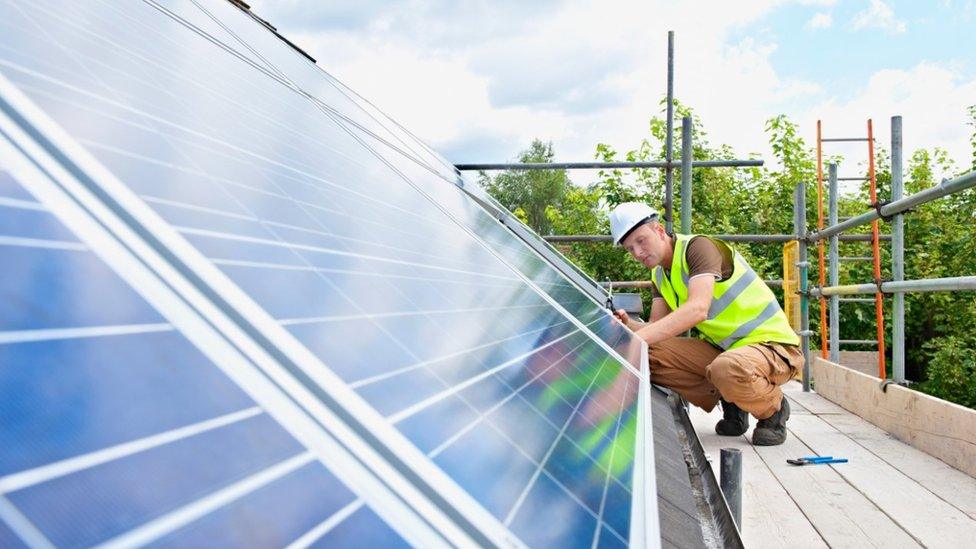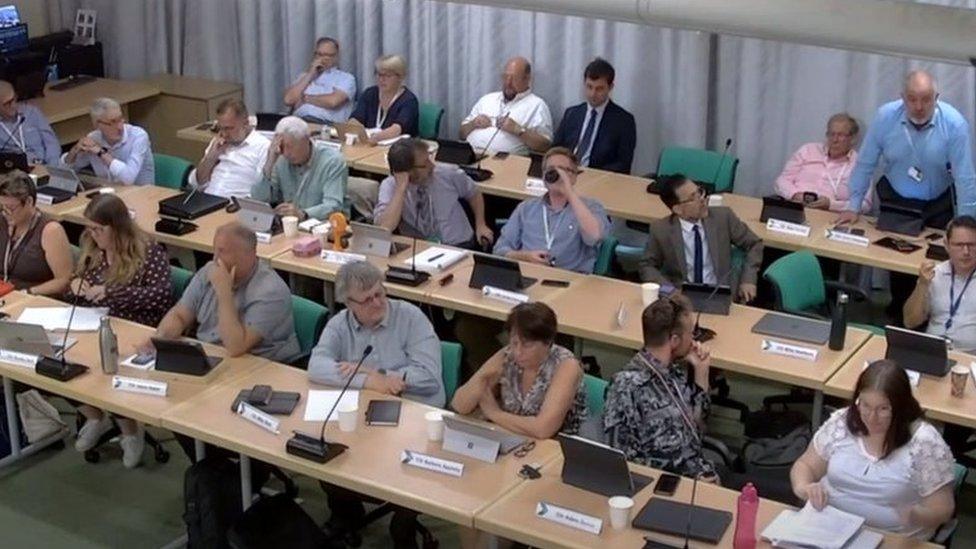Wiltshire breaking green promises, campaigners say
- Published

Campaigners said the council was falling short in its reaction to climate change
Climate campaigners have accused the local authority of falling short on its environmental pledges.
Wiltshire Climate Alliance presented a list of failings that included the failure to apply for funding to improve walking and cycling infrastructure.
It said the government had provided a £2bn funding pot but Wiltshire's share of its most recent round was £0.
Councillor Mark McClelland said the council was working on a bid for the next round of the Active Travel Fund.
Wiltshire declared a climate emergency in 2019 and is working towards becoming carbon neutral by 2030.
"Much is made by Wiltshire Council of its emerging Local Cycling and Walking Infrastructure Plans (LCWIPs)," The Climate Alliance told a meeting on 18 October, before declaring that Wiltshire's share of the most recent funding round was £0.
"Tranche 4 is due before the end of the year but so far there is no sign of any bids being prepared.
"The LCWIPs will be of little point if the council does not actually submit and win bids to deliver active travel infrastructure on the ground."
The group also criticised Dr McClelland's previous statements about supporting motorists and not investing in schemes that might inconvenience motorists, the Local Democracy Reporting Service., external said.

Mark McClelland said the council would have more details about its submission to the Active Travel Fund "in due course"
Dr McClelland, cabinet member for transport, said the council supported the "decarbonisation of existing transport and an increase in walking and cycling".
"That is why we plan to create LCWIPs for all of Wiltshire's towns, and we have just completed the consultation for both Wiltshire-wide and Salisbury LCWIPs," he added.
The Climate Alliance also criticised the claim the council's electric vehicle charging point scheme delivers mainly fast chargers (7kw).
"This seems a very short-term offering to the public.
"For modern electric cars (with battery sizes 40-100Kwh), the default, unless you have hours to wait, is a rapid charger (43-50kw+)."
The group's document concluded that while there had been some good work by the council on climate change, more needed to be done.

Follow BBC West on Facebook, external, Twitter, external and Instagram, external. Send your story ideas to: bristol@bbc.co.uk , external
Related topics
- Published10 October 2022

- Published19 October 2022

- Published15 September 2021

- Published27 July 2022
